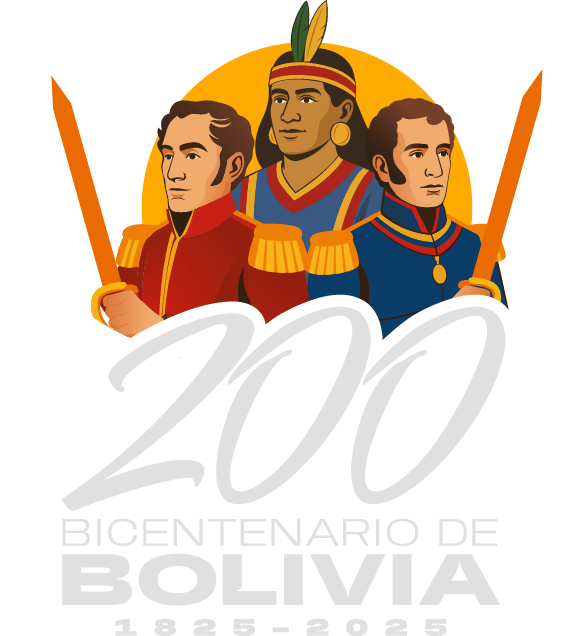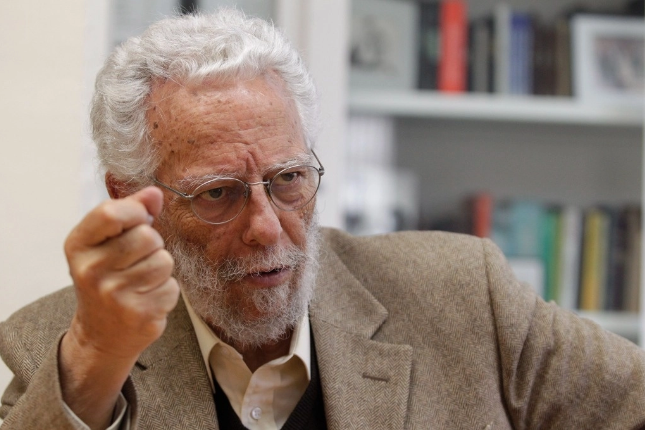By Katya Colmenares Lizarraga
Enrique Domingo Dussel Ambrosini is the most relevant contemporary philosopher of the global south. He has written more than 75 books and 450 articles, translated into at least eight languages, and he is the most important representative of the Philosophy of Liberation, a critical philosophy of worldwide scope at the service of the liberation of the victims, the oppressed and the excluded in the face of any system of domination.
He holds a philosophy and theology degree, a doctorate in history and philosophy, a professor and researcher emeritus, and a rector of the University of Mexico City (2014). His work earned him 11 honorary doctorates and awards, such as the Franz Fanon Prize (2009), the Aristotle Medal of Unesco (2012), and the Liberator Prize for Critical Thought (2010). He chaired for 25 years (1968-1993) the Commission for the Study of the History of the Church in Latin America and the Caribbean (Cehila), during which time he contributed to the fabric of liberation theology in the continent; at the same time, as an academic, he gave lectures and courses in the most important universities in the world, where he formed generations. His political commitment led him to exile in Mexico after receiving a bomb in his house (1973). He was considered a member of the Ponchos Rojos in the Bolivian highlands (2009), participated in dialogues with the Zapatista Army of National Liberation, was internal advisor of the National Institute of Political Formation of the National Regeneration Movement (Morena) and secretary of political formation for Morena (2021). He maintained dialogue with relevant philosophers of the global north such as Karl-Otto Apel, Gianni Vattimo, Jürgen Habermas, Richard Rorty, and Emmanuel Levinas. Together with Raul Fornet-Betancourt, he was the architect of the south-south dialogues, an unprecedented epistemological effort seeking routes of transmodern and decolonial understanding. He called himself a disciple of Franz Hinkelammert (1931-2023), who inspired him to develop the most relevant principles of his philosophy. He was a teacher of Juan José Bautista (1958-2021), a Bolivian philosopher from whom he learned the transmodern radicality of the community of life.
If I had to plan my life, I would not change anything about what I have lived in it. It has been so rich, complex, and intense that I could not imagine it better, Enrique Dussel said in an interview in 2022.
The story of his life has been a journey towards the place that gives truth. When he was barely 27 years old, he was clear about what that place was: We should write history the other way around, from the poor to the oppressed. That effort constituted a historical orientation and a research program that became a method. Years later, with the help of Hermann Cohen, he will state it with precision: the method consists of knowing how to place oneself in the place of the poor and to diagnose the pathology of the system.
Ten years of work on the work of Karl Marx in the 1980s allowed him to find the precise coordinates to think of this method from a new principle and imperative for philosophy: the duty to produce, reproduce, and develop life. From the first existing cell to the human being of the 21st century, life has developed uninterruptedly, and we are all the same life that, in its will to survive, has produced human reason as cunning. Life took self-consciousness and self-responsibility through the human being. We are then called to take charge, not only of our individual lives but of the life of the entire planet.
In 1492, the year in which the modern-western civilizing project arose, an inversion, in reality, took place, reason ceased to be at the service of life and fetishized as purely instrumental rationality at the service of capital, reason became disengaged from ethics and, therefore from life. The Philosophy of Liberation is a path back to life, and therefore a path towards modern-western decolonization. It is about, as Marx said, putting the method on its feet and transforming reality, science, and subjectivity, so that we advance towards a trans-modern world, oriented towards the production, reproduction, and development of life, not only of any life but first the life of the denied, of the victims, of the excluded, of the oppressed: for the good of all, first the poor.
Rest, master, and go in peace. The new generations will follow in your footsteps. You will accompany us and illuminate our path with all the ancestors who also fought for the liberation of the people.



